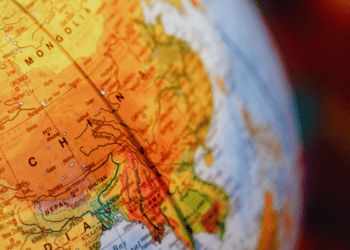October 26, 2012 – In today’s Globe and Mail, MLI’s Linda Nazareth writes about the cautious outlook many people have about the economy even though it is expanding. She says, “The statistics are pretty good but something major shifted four years ago, and it has not shifted back. Employers and employees both expect the worst to happen at any time – and that is affecting everyone’s mood.” The full column is copied below:
The economy is expanding: Why are we so grumpy?
By Linda Nazareth, The Globe and Mail, October 26, 2012
Let’s get this straight: Canada is not in recession, nor has it been in recession since, oh, 2009. We are not even really in a ‘recovery’: Canada has been growing so long now that this is just a plain-vanilla expansion. Mark Carney, the Governor of the Bank of Canada, said so this week — but then again what does he know, right?
You can pick your favourite definitions of recession and Canada still comes out as having been in expansion mode since, oh, 2009. The old-style textbook way of defining these things is by looking at gross domestic product. If the economy goes down for a couple of quarters in a row, that’s a recession. That did happen to Canada in late 2008 and into 2009 – but gross domestic product has been rising since.
Then again, the GDP method of defining a recession is pretty narrow, and it is not really in vogue anymore. In the U.S., the National Bureau of Economic Research (NBER) calls a recession when its smorgasbord of economic indicators (including things like inflation-adjusted sales and industrial production) move lower, but it also uses its judgment when defining expansions and recessions.
In Canada, Statistics Canada uses a similar judgment-based system definition and called the end of recession as happening in 2009. More recently, a group of economists under the umbrella of think tank the C.D. Howe Institute has adopted a NBER-style dating method. It says the Canadian recession started in 2008 and was over seven months later, in early 2009.
Other people have different definitions. For the average worker, all that matters is whether or not they are employed, and whether they are making wage gains.
The unemployment rate in Canada was 7.4 per cent as of September, which is still higher than the 5.9 per cent low touched in September, 2007. Still, as of September, 2012, Canadian employment was 471,000 higher than at the pre-recession peak in May, 2008. You can argue that not every one of those jobs has come with gold-plated benefits, but it is still a pretty solid picture.
If you want to look at the dark side of this, you can go with the employment to population ratio – the proportion of people working compared to the total working age population. That one has not recovered to its pre-recession level: it was 61.9 per cent in September, compared to 63.7 per cent pre-recession. That is not necessarily a bad thing though: a lot of the people not working are in school instead, which is presumably a good thing in the long run. There is also a demographic bias towards a lower employment population ratio as Canada ages, and some of that is probably at play here too.
So people are working – but are they getting ahead? Well, for that we can look at the just-released data from the Survey of Employment, Payrolls and Hours. Average weekly earnings of non-farm payroll employees were up 3.6 per cent on a year-over-year basis. Given that the inflation rate is now just 1.8 per cent, that means that wages are up in ‘real’ terms. Again, not every person in the country is getting ahead – but the country is.
So what gives? Why is everyone still so downbeat?
You can argue that the current malaise is a reaction to the dreadful news from elsewhere in the world, and I would not disagree.
But there are other factors at play. My favourite indicator of ‘recession’ or ‘expansion’ mentality is something I call the ‘holiday party indicator’.
In good times, companies spend freely on lavish holiday parties. As things darken, those frills are the first to go. In 2008, a lot of those parties were shut down and, as it turns out, shut down for good. According to a survey by the Human Resources Planning association, 39 per cent of employed Canadians are not expecting a blow out this year. It is not clear what the parties that do happen will be like, but, anecdotally, it seems like a lot of lavish soirees have been permanently been replaced by potlucks.
So yes, the statistics are pretty good but something major shifted four years ago, and it has not shifted back. Employers and employees both expect the worst to happen at any time – and that is affecting everyone’s mood.
Perhaps it’s the growing pile of household debt that is sparking the unease. One one hand, the credit binge does not point to a country where people are worried about the future.
A sluggish global economy is keeping your monthly payments low. But if growth picks up, Mr. Carney is certainly going to raise interest rates. You might get the holiday party back, but it’s going to come with higher mortgage payments.
Linda Nazareth is the principal of Relentless Economics and senior fellow for economics and population change at the Macdonald Laurier Institute. Visit her at relentlesseconomics.com
—




